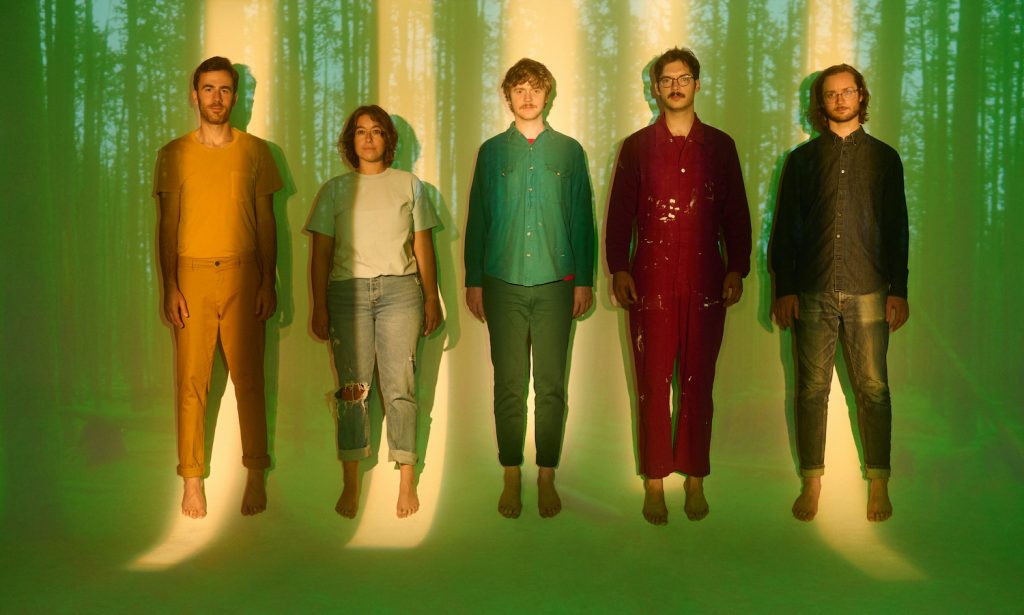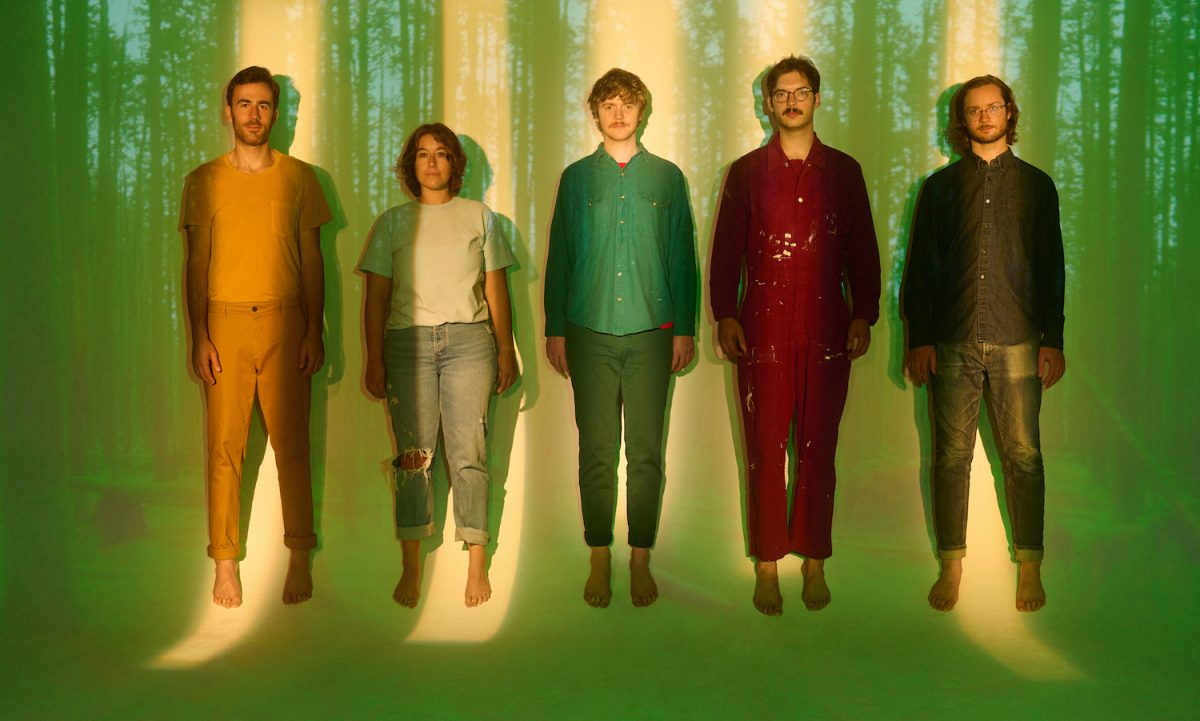
It’s been humbling five years for Pinegrove’s Evan Stephens Hall. Just as his angular indie-twang outfit was gaining some serious momentum in all the right circles with 2016’s Cardinal, Hall was hit with a highly public “sexual coercion” accusation from a member of his touring entourage. Pinegrove took a year-long hiatus as a result, releasing 2019’s Skylight just as COVID-19 was finding its way out of China. The band soldiered on through the pandemic, releasing Marigold in 2020 and Amperland, NY a year later.
The extended break had to be frustrating for a guy who’s accustomed to connecting with his audience to the tune of 200 shows a year. A New Jersey native, Hall has tried to make the most of the time off, putting down more permanent roots in New York’s Hudson Valley, where he seems enormously content. MAGNET touched base with Hall at his home in Woodstock as Pinegrove was ramping up for the release of its sixth album, 11:11 (Rough Trade), and a subsequent tour.
In 100 words or less, explain the title of the new album.
I chose the title because it was flexible enough to accommodate several different meanings. On the one hand, it’s a row of trees—so, in that sense, it’s a self-titled album. Whenever I’m talking about trees on the album, I’m talking about myself and I’m talking about the ecosystem. It’s also a community, a row of people standing side by side. It’s cornfields seen from above. It’s corduroy. And besides, 11:11 is a time when you make a wish. It’s a visually aesthetic time. I’m sure I’m way over my word count. [Laughs]
From the beginning, your creativity has been heavily influenced by your immediate surroundings. How was that this case when you were working on 11:11 in the Hudson Valley?
Skylight was actually the first album we recorded in the Hudson Valley. And Marigold was about all the other neighbors we have—the insects, the birds, the people living next door who are hunters. This record was the first one recorded on the other side of 2020, and being able smell the smoke from the forest fires on the West Coast was really alarming and visceral. A song like “Flora” is an apology for what we’re doing to nature, and a deliberate immersion in it—trying to slow down and listen to what it has to say. The line between humans and nature is an artificial distinction. It’s all of this world.
I’m struck by the coziness of 11:11. Heck, it almost feels like a warm hug.
We do want to make music that is, in part, comforting. But we also want it to be challenging—to create a space where people can interrogate themselves or their relationships. Still, we don’t want to make it antagonistic. We want to create a space that feels good to explore. Part of our ethos is to use as many room mics as possible, as opposed to that artificial reverb sound. It’s absolutely essential to creating that space. That’s why you get incidental sounds—like the birds in “Habitat” toward the end. We just opened the window during one of the takes.
What role did Chris Walla play in creating that space?
When Chris’ name was floated for this, it was either him or we were going to do it ourselves. He had a really egalitarian atmosphere in the studio, and that’s a testament to his kindness and the way he holds himself. It was just so terrific to collaborate with him. And the way those Death Cab albums sound—the instruments sound so natural and yet really upfront. That was always a goal for us.
As an instructive indie-rock model for building a grassroots fanbase, you could do worse than Pinegrove. What’s your secret?
The point has always been that the art is a gift. We’re making this music regardless of any financial stakes. Of course, it’s also understood that we do need money to get to the next town. There’s a book by Lewis Hyde called The Gift, where he talks about waves of reciprocity in gift giving. I think DIY in the 2010s was an amazing example of that. It started with three priorities: community, friendship and accessibility. For us, there’s also an insistence that, whatever marketing schemes are being suggested by people who think they know, there’s really no alternative to writing good songs and being a good band. We really put our heads down and played hundreds of shows before anybody knew who we were.
You’re now five years removed from the unfortunate events of 2017. How does it feel to get some distance from it?
There are still things that people don’t really understand about what happened. I was involved with somebody who worked with us. At the time, we discussed what those dynamics were. But after the relationship ended, she felt uncomfortable about those dynamics. That was a private criticism that I was dealing with, considering and metabolizing. But in the meantime, there was a third party that got involved. This third party was promoting their own brand, and I was pressured to make a statement by this third party—not the person I was involved with. It’s difficult to stand by the personal statement now because it was composed during a time of personal chaos. It’s something I still think about a lot. I support the movement to call out abusers in our community, but I think my situation was misunderstood. And at the same time, it’s awful to be on the wrong side of that conversation. A lot of men—myself included—have taken a lot of time to reevaluate how they treat people. I hope that continues
Pinegrove has always been vocal about progressive causes. Where does 11:11 fall on the sociopolitical spectrum?
Politics has become less and less a discreet category—it’s a lived experience. For many people, just being alive is a political statement. I hope this album lives with the awareness of that complex matrix of grievance, joy and community.
—Hobart Rowland







